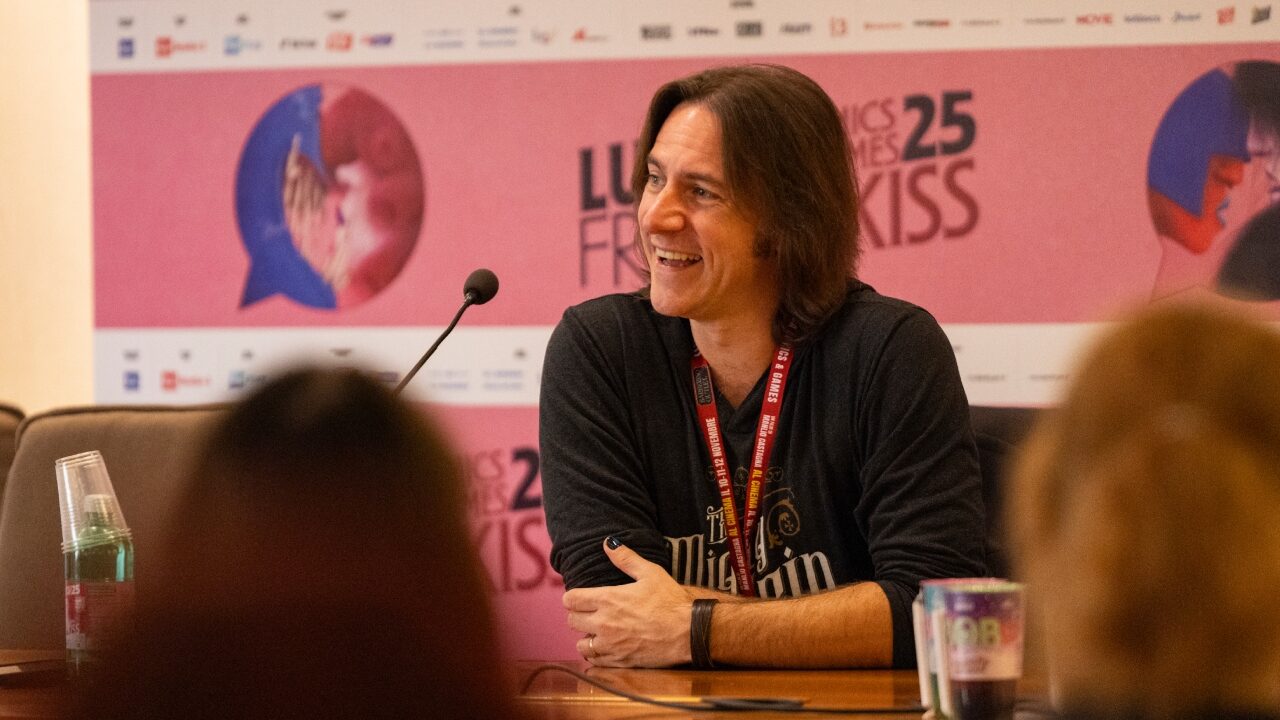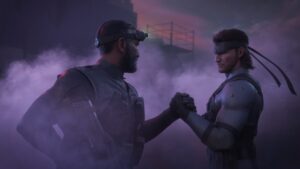Lucca Comics & Games feels like the ideal place to talk all things fantasy. The festival proved to be the perfect backdrop for a milestone conversation with Matthew Mercer, the voice actor and Dungeon Master behind Critical Role. What began as a small streaming experiment among friends has grown into a cultural phenomenon that now reaches millions of fans around the world. Even after years of success, each new campaign seems to draw in bigger crowds—and with the release of the group’s new role-playing game system, it looks poised to grow even more from here.
After struggling with travel delays, Matthew Mercer still arrived at the press conference with a wide smile and a genuine excitement to speak with everyone in the room—and to revel in the festival and the medieval city filled with fans of all kinds.
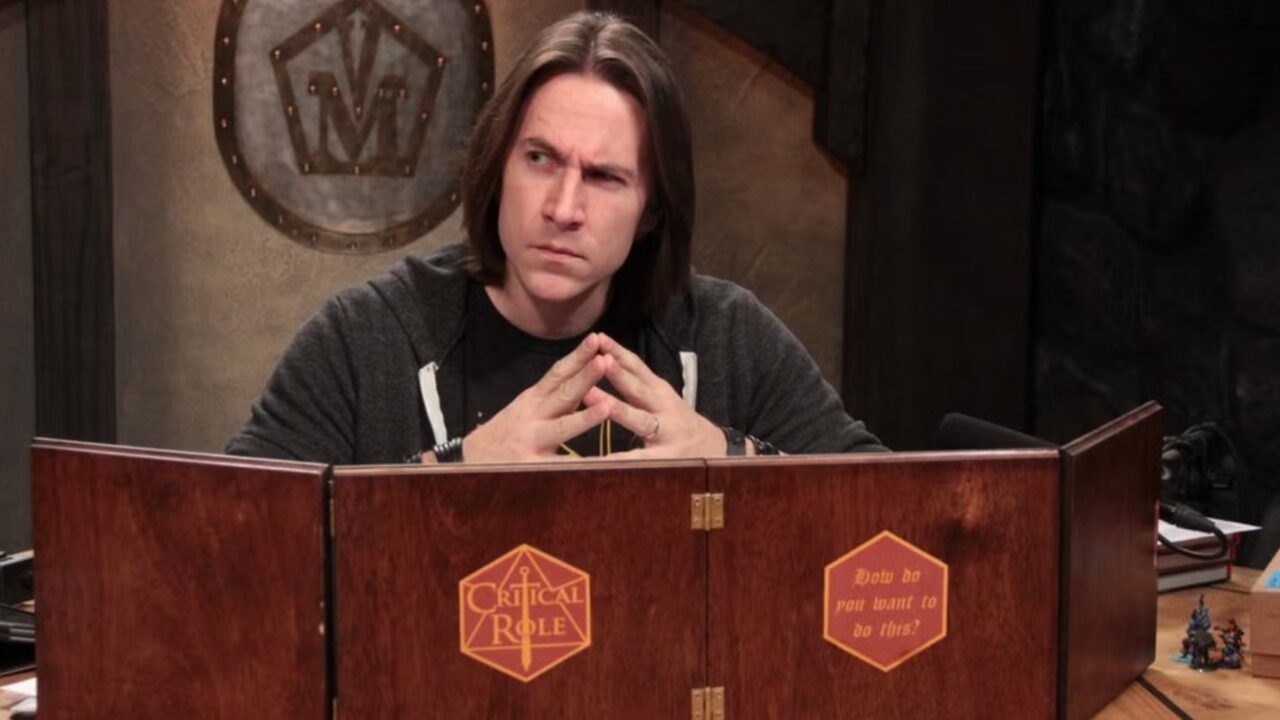
With Critical Role recently celebrating its 10th anniversary, Mercer is still catching his breath. The show has expanded far beyond its tabletop roots, spawning an animated series, publishing deals and its first video game collaboration. But success has come with challenges. Maintaining creative control while the brand scaled up has required constant vigilance and thoughtful decision-making from the entire cast.
Mercer’s journey with Dungeons & Dragons began long before the cameras turned on. He grew up playing the game in the late 1990s, when nerd culture still operated behind closed doors. Now, he watches cosplayers dress as his characters at conventions around the world. The transformation still feels surreal, even after all these years.
Despite all the success, Mercer remains one of the most down-to-earth and approachable guests at the festival, genuinely excited to talk about his creative endeavours, the fans he’s so thankful for, and the journey that brought him to one of the biggest celebrations of nerd culture in the world. Lucky for us, we got to ask him a few questions of our own.
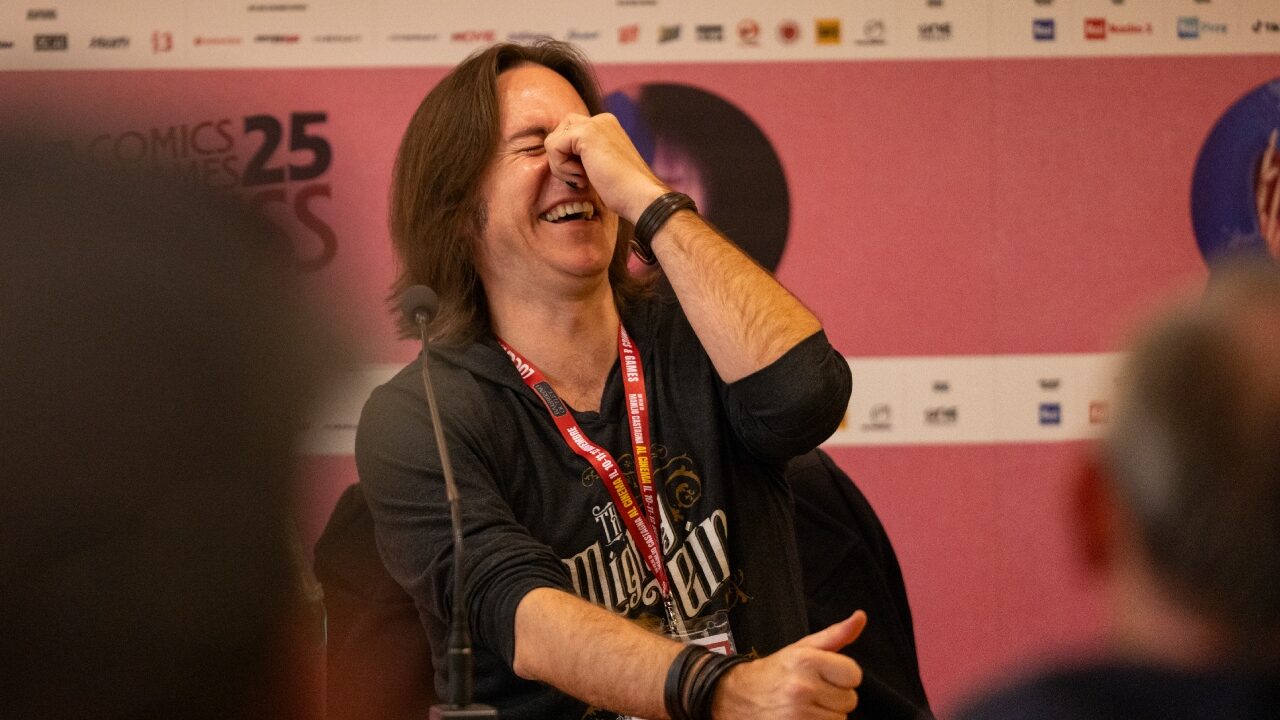
You were celebrating 10 years of Critical Role. Did you ever imagine it becoming this big when you started all those years ago?
Matthew Mercer: Absolutely not. Every year, we have another moment where we look at each other, laugh, and go, “What the hell?” We never expected this. Actual play, in its own right, had been around for a while, but it was always very niche—outside things like Acquisitions Inc. and a few small examples. We didn’t even plan to do this. We were asked to, and we didn’t think it would go anywhere.
So, it’s been 10 years of trying to catch up to it and meaningfully maintain control in an industry that often likes to wrestle that away—into the hands of people who shouldn’t be in charge of creative decisions. We see that a lot in television.
It’s been a very meticulous process, as all of us—both as individuals and as a brand—work to safeguard this thing as it grows. Part of that means trying to move smoothly and steadily, taking it one step at a time. Then suddenly, we turn a corner and everything is escalating at such a rapid pace that we’re like, “Oh God, what’s happening?”
It’s equal parts exhilarating and terrifying. We’re all very careful, constantly checking in with one another, and continuously blown away by what this has become. It’s wild. We just launched our first video game collaboration a week ago—that’s still crazy to me. So, to answer your question: no, we had no idea. But we’re doing our best to keep up with it, with all the responsibility we can muster.
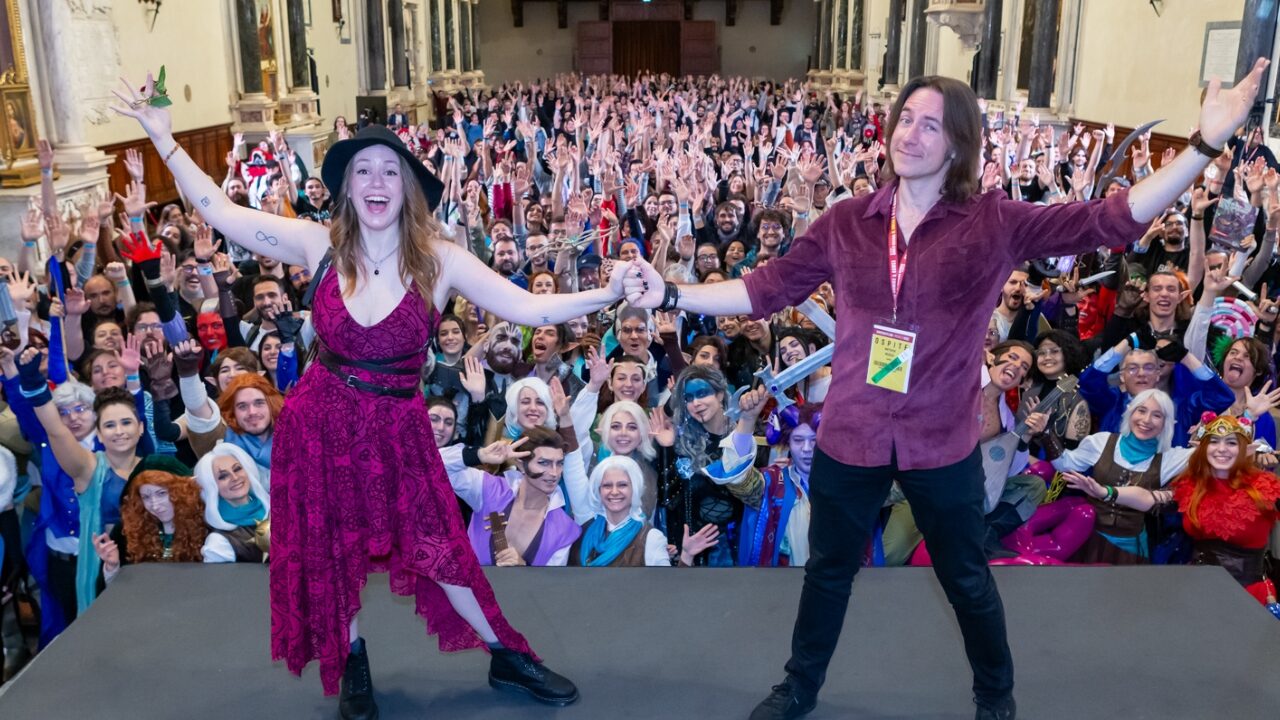
You mentioned being part of nerd culture before Critical Role, but how has your relationship with Dungeons & Dragons and games like it changed—both before working with Critical Role and now, as you’ve become such a major part of nerd culture in general?
Matthew Mercer: Oh boy, it’s changed a lot. I grew up playing it in high school in the late 1990s, when it was still very much behind closed doors—coming out of the satanic panic that many of us went through—and surrounded by a lot of unfortunate and untrue assumptions about how Dungeons & Dragons is played or the kind of people who play it. It was something I loved, but I had a hard time finding a community around it. So instead, I created one by inviting friends or co-workers to play a one-shot. Most of them had never played before.
I found that interesting, and I think that’s part of why everything took off. A lot of people have always been curious, but never had an opportunity to feel invited to try it. People my age and older—and people far younger—often didn’t have a way to understand whether they’d enjoy it or how to get involved. So I would extend that invitation and then watch people realize, “Oh, I had no idea it was this fun, this engaging, this creative,” and fall in love with the game the same way I did when I was a kid.
Before Critical Role, I was almost evangelical about it, telling people, “This is one of the best ways you can have fun with your friends.” There are so many great tabletop RPGs out there. Dungeons & Dragons is a great one, and it’s the one everyone knows, but there are also so many incredible independent games in different genres and styles.
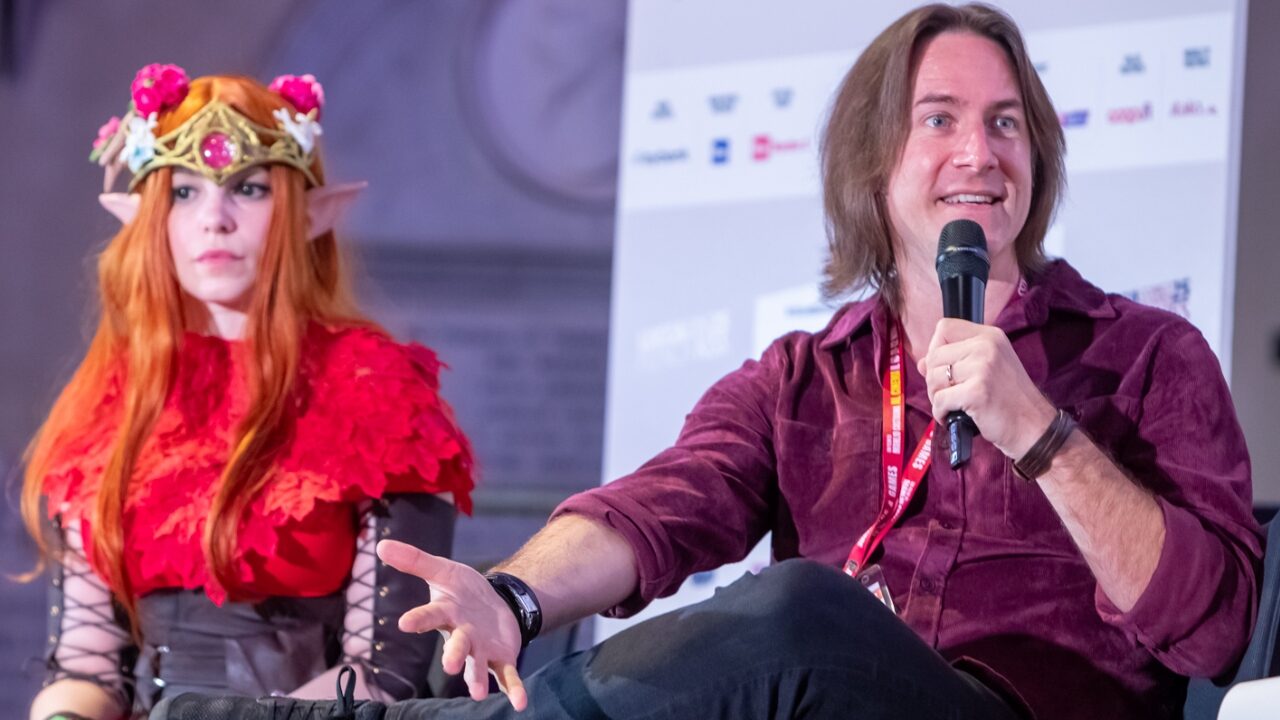
Much like your favourite types of movies, there’s an RPG out there that captures that same energy—something you can experience and shape yourself. I always wanted the hobby to be more accepted and shared, because for me, it’s one of the most healthy and creatively fulfilling experiences a person can have with friends. I was always frustrated that more people didn’t play.
When we were asked to do Critical Role, that was part of the reason I agreed to it. I thought, hopefully, if this goes well, it’ll be something I can point to when people ask me what it’s like. I wouldn’t have to stammer for 10 minutes at a party, saying, “Well, because you’re in a class and you have to roll your stats—” and then they’d say, “I’m just going to go home,” and walk away. Instead, I could send them the link, and maybe more people would discover it that way.
We did it quite simply. We didn’t know how many people would watch—and it’s exploded since then. The fact that we’ve even been part of it is still a wild thought to me, 10 years later. I’m technically canon in the Forgotten Realms—that’s crazy. I read the Drizzt books when I was a kid, which means, technically, we could meet. I don’t know about that, but yeah.
Since I was a kid, I’ve seen this misunderstood, misfit, wonderful experience grow—and now it’s being embraced and expanded in so many ways. There are massive cosplay groups out there dressed as our Dungeons & Dragons characters, and as their own. Events are growing year after year, showcasing and platforming new game designers who are drawing inspiration from games that have been around for 40 years, and finding new, creative ways to engage with both dice and diceless role-playing games. It’s incredibly exciting.
I never would have expected any of this. My favourite thing to hear from people in the community at events and conventions is, “These games have brought me closer with my friends, or closer with my family, than I ever hoped I could be.” That, to me, is the most important thing I’ve ever heard in my life. The friends who mean the most to me are ones I made through games like this. To see other families and friends find that same sense of unity through it—that’s incredible.
